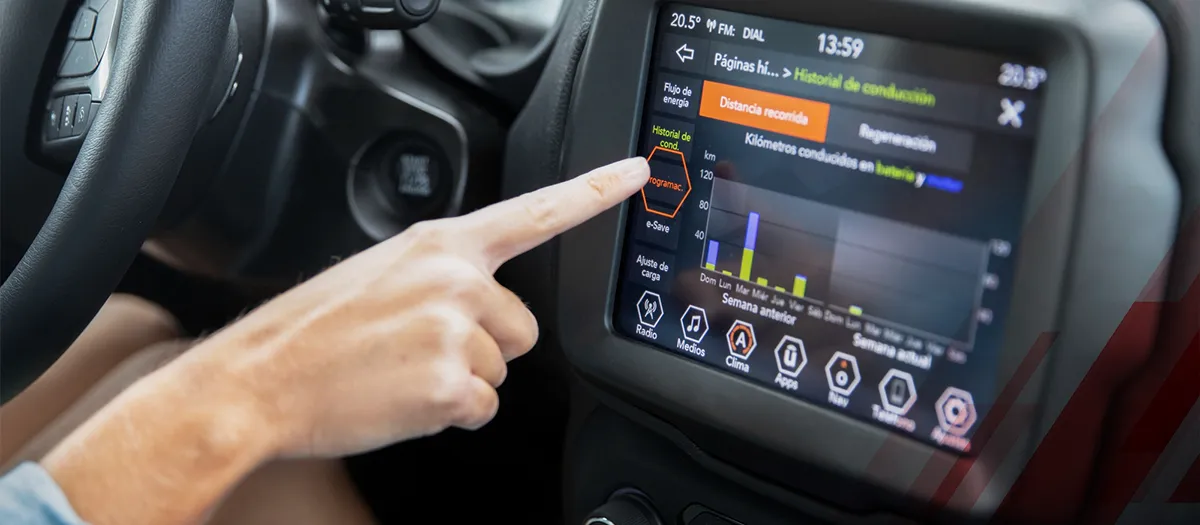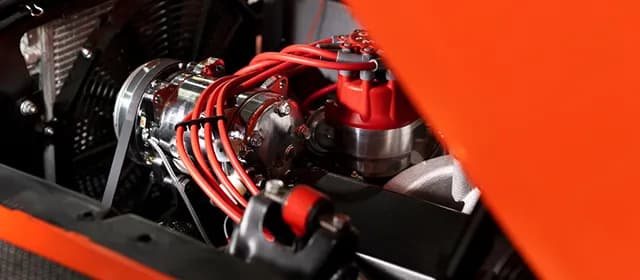The automotive industry is undergoing a major transformation, and at the heart of this change is telematics. Once considered a luxury feature, automotive telematics has now become a critical part of modern vehicles—connecting cars to the cloud, to infrastructure, and to each other. From GPS navigation and remote diagnostics to real-time vehicle tracking and emergency response systems, telematics is reshaping how we drive, maintain, and interact with vehicles.
This growing importance is driven by several factors. Increasing demand for connected vehicles, rising concerns over driver and passenger safety, and stricter government regulations around vehicle monitoring are pushing automakers and tech companies to integrate telematics solutions more deeply into their offerings. As per Kings Research, the global automotive telematics market is set to generate a valuation of $135.09 billion by 2032.
In this blog, we’ll take a deep dive into the automotive telematics market. We'll explore what’s driving its rapid growth, the key trends and innovations to watch, and which companies are leading the way.
10 Best Companies in Automotive Telematics Market
The automotive telematics industry has rapidly evolved into a cornerstone of modern mobility, integrating vehicles with advanced communication technologies to enhance safety, efficiency, and user experience. Leading this transformation are ten prominent companies, each contributing uniquely to the telematics landscape.
1. Bosch Service Solutions GmbH
A subsidiary of the Bosch Group, Bosch Service Solutions GmbH specializes in innovative telematics services. Their offerings encompass emergency call systems, remote diagnostics, and connected parking solutions, providing real-time data and services that enhance driver safety and convenience.
2. Continental AG
Continental AG is a global leader in automotive technology, offering scalable telematics platforms tailored for various vehicle types, including commercial and agricultural machinery. Their Telematics Control Units (TCUs) support 4G and 5G connectivity, vehicle-to-everything (V2X) communication, and over-the-air updates, ensuring vehicles remain connected and up-to-date.
Continental has also partnered with Samsara to integrate in-tire sensor data with trailer telematics, enhancing fleet management by providing comprehensive trailer status information.
3. Qualcomm Technologies, Inc.
Qualcomm has significantly impacted the automotive telematics market with its Snapdragon Digital Chassis platform. This comprehensive solution integrates telematics, connectivity, infotainment, and driver assistance systems. Collaborations with major automakers like Mercedes-Benz highlight Qualcomm's role in advancing vehicle intelligence and connectivity.
4. Verizon
Through Verizon Connect, the company offers robust telematics and fleet management solutions. Their platform provides real-time vehicle tracking, driver behavior monitoring, and maintenance alerts, aiding businesses in optimizing fleet operations and ensuring compliance with regulations.
5. LG Electronics
LG Electronics is at the forefront of 5G telematics technology, supplying advanced telematics control units (TCUs) to premium automakers. Their solutions support high-speed connectivity, real-time data processing, and V2X communication, enhancing vehicle safety and infotainment capabilities.
LG has also partnered with HERE Technologies to provide high-precision map data and location services, supporting the development of autonomous vehicles.
6. HARMAN International
A subsidiary of Samsung Electronics, HARMAN International specializes in connected car solutions, including telematics, infotainment, and advanced driver assistance systems (ADAS). Their technologies enable seamless connectivity and immersive in-car experiences, contributing to the evolution of smart vehicles.
7. Clarion
Now operating under Faurecia Clarion Electronics, Clarion has a rich history in the automotive telematics market. They provide OEMs with integrated telematics solutions, combining navigation, audio, and connectivity features to enhance driver engagement and safety.
8. ACTIA Corporation
ACTIA Corporation offers specialized telematics solutions through its ICAN platform, designed for fleet management and vehicle data analysis. Their technology enables real-time monitoring, predictive maintenance, and energy optimization, supporting sustainable and efficient fleet operations.
9. Masternaut Limited
A subsidiary of Michelin, Masternaut Limited is a leading provider of fleet telematics services in Europe. Their platform delivers insights into driver behavior, fuel consumption, and vehicle utilization, helping businesses reduce costs and environmental impact.
10. Trimble Transport & Logistics
Trimble specializes in telematics solutions for the transportation and logistics industry. Their offerings include GPS tracking, route optimization, and compliance management, enabling companies to enhance operational efficiency and customer service.
These ten companies exemplify the dynamic nature of the automotive telematics market, each contributing to the advancement of connected vehicle technologies. Their innovations are shaping the future of transportation, emphasizing safety, efficiency, and enhanced user experiences.
Notable Trends Transforming Automotive Telematics Market
The automotive telematics market is experiencing significant growth, driven by several key trends that are reshaping the industry. Here's an overview of the major trends influencing this market:
- Surge in Connected Vehicle Demand: Consumers are increasingly seeking vehicles equipped with advanced connectivity features. Telematics systems enable real-time navigation, remote diagnostics, emergency assistance, and infotainment services. This demand is propelling automakers to integrate sophisticated telematics solutions into their vehicles. In 2023, approximately 75% of new cars sold globally were equipped with embedded telematics systems, up from 72% in 2022.
- Integration of 5G and AI Technologies: The adoption of 5G networks and artificial intelligence (AI) is enhancing telematics capabilities. 5G offers faster data transmission, enabling real-time vehicle-to-everything (V2X) communication. AI facilitates predictive maintenance, driver behavior analysis, and advanced driver-assistance systems (ADAS), improving overall vehicle performance and safety.
- Government Regulations and Safety Mandates: Regulatory bodies worldwide are implementing mandates to enhance vehicle safety and reduce emissions. For instance, the European Union's eCall initiative requires all new cars to have built-in emergency call functions. Such regulations are accelerating the adoption of telematics systems in vehicles.
- Expansion of Usage-Based Insurance (UBI): Insurance companies are leveraging telematics data to offer usage-based insurance models. These models assess driving behavior, mileage, and other factors to determine premiums, incentivizing safer driving habits and providing cost savings for consumers.
- Growth in Fleet Management Solutions: Businesses are increasingly adopting telematics for fleet management to optimize routes, monitor driver behavior, and reduce operational costs. Telematics systems provide real-time data, enhancing efficiency and safety across commercial fleets.
- Rise of Electric Vehicles (EVs): The growing popularity of electric vehicles is influencing telematics development. Telematics systems in EVs monitor battery performance, provide charging station information, and assist in energy management, contributing to the overall efficiency of electric mobility.
- Dominance of Asia-Pacific Region: The Asia-Pacific region, particularly countries like China and India, is leading the automotive telematics market. Factors such as rapid urbanization, increasing vehicle production, and government initiatives supporting smart transportation are driving growth in this region. In 2024, Asia-Pacific accounted for 36.55% of the global market share.
- Emphasis on Cybersecurity: As vehicles become more connected, ensuring the security of telematics systems is paramount. Automakers and technology providers are focusing on developing robust cybersecurity measures to protect against data breaches and unauthorized access.
These trends collectively indicate a dynamic and rapidly evolving automotive telematics market, with technological advancements and consumer preferences driving its expansion.
Final Thoughts
The automotive telematics market is more than just a trend—it’s a foundational shift in how vehicles operate, communicate, and evolve. As cars become increasingly software-defined and data-driven, telematics will serve as the critical link between drivers, manufacturers, and the wider mobility infrastructure. From enhancing safety and optimizing fleet operations to enabling new business models like usage-based insurance and predictive maintenance, the impact of telematics is far-reaching.

.webp&w=3840&q=75&dpl=dpl_HkC6vhtovZ9gdp5f4CCyQszcdnYs)

